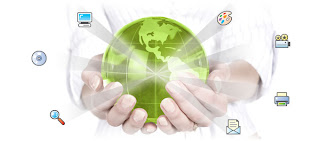
ARTICLE BY: DRISHYA SUBASH
Services marketing is marketing based on relationship and value. It may be used to market a service or a product.
Marketing a service-base business is different from marketing a goods-base business.
There are several major differences, including:
- The buyer purchases are intangible
- The service may be based on the reputation of a single person
- It's more difficult to compare the quality of similar services
- The buyer cannot return the service
The major difference in the education of services marketing versus regular marketing is that apart from the traditional "4 P's," Product, Price, Place, Promotion, there are three additional "P's" consisting of People, Physical evidence, and Process.Service marketing also includes the servicewomen referring to but not limited to the aesthetic appearance of the business from the outside, the inside, and the general appearance of the employees themselves. Service Marketing has been relatively gaining ground in the overall spectrum of educational marketing as developed economies move farther away from industrial importance to service oriented economies. What is marketing? Marketing is the flow of goods and services from the producer to consumer. It is based on relationship and value. In common parlance it is the distribution and sale of goods and services. Marketing can be differentiated as:
- Marketing of products
- Marketing of services.
Marketing includes the services of all those indulged may it be then the wholesaler retailer, Warehouse keeper, transport etc. In this modern age of competition marketing of a product or service plays a key role. It is estimated that almost 50% of the price paid for a commodity goes to the marketing of the product in US. Marketing is now said to be a term which has no particular definition as the definitions change everyday.
"Managing the evidence" refers to the act of informing customers that the service encounter has been performed successfully. It is best done in subtle ways like providing examples or descriptions of good and poor service that can be used as a basis of comparison. The underlying rationale is that a customer might not appreciate the full worth of the service if they do not have a good benchmark for comparisons.
However, it is worth remembering that many of the concepts, as well as many of the specific techniques, will work equally well whether they are directed at products or services. In particular, developing a marketing strategy is much the same for products and services, in that it involves selecting target markets and formulating a marketing mix. Thus, Theodore Levitt suggested that "instead of talking of 'goods' and of 'services', it is better to talk of 'tangibles' and 'intangibles'" Levitt also went on to suggest that marketing a physical product is often more concerned with intangible aspects (frequently the `product service' elements of the total package) than with its physical . sales after service is very imporatant in service sector. properties. Charles Revson made a famous comment regarding the business of Revlon Inc.: `In the factory we make cosmetics. In the store we sell hope.' Arguably, service industry marketing merely approaches the problems from the opposite end of the same spectrum
Thanks DRISH for your nice article. It will help all budding managers to realise the importance of SAP.
ReplyDelete